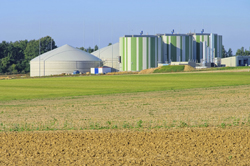Streamlining biorefinery research
Biological material, or biomass, can be refined to produce fuel, power, heat and chemicals. Unlike the refinement of petroleum for those same ends, biorefining is sustainable since it most often uses left over or industrially grown plant matter. The EU has funded the collective work of industry-driven technology platforms, researchers and the International Union for Conservation of Nature (IUCN) to make biorefineries a widespread reality within the next few years. This collaboration is known as 'Strategic targets for 2020 - Collaboration initiative on biorefineries' (STAR-Colibri) and it intends to streamline and accelerate biorefinery research for industrial applications. The consortium has identified over 300 European projects and 900 organisations related to biorefinery research. These stakeholders can find and share information through an online portal established by the STAR-Colibri project. The project also created a research roadmap for 2020 that prioritises certain research and policies. While establishing a model for different research groups to start working together towards the 2020 goals, the consortium developed criteria for 'Star projects' and 'StarClusters'. In one success story, five partners have already clustered together under the name 'Bio4Flow' for a project known as 'Bio4Energy'. STAR-Colibri has also found that the best way to invest in this research would be to create partnerships between public and private investors. Their ultimate vision for 2030 is that Europe should have a competitive edge when it comes to sustainable products. They hope that bio-based industries will become well established and that rural economies could become based on biorefining.

